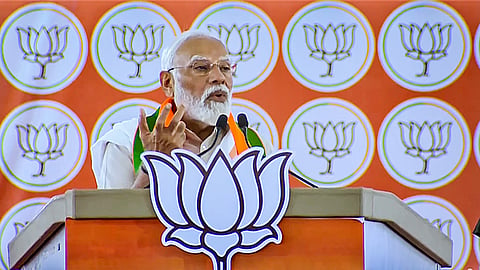

NEW DELHI: The Delhi High Court on Thursday reserved its verdict on a long-standing legal battle concerning Prime Minister Narendra Modi’s educational records.
The court was hearing a plea filed by Delhi University (DU) challenging the Central Information Commission’s (CIC) 2016 order, which directed the university to disclose information about students who passed the Bachelor of Arts (BA) programme in 1978 – the year Modi is said to have graduated.
Justice Sachin Datta, after hearing arguments from both sides, reserved the order, leaving the contentious issue hanging as a legal and political flashpoint.
DU filed its petition against the CIC’s ruling in 2017 and secured a stay on the order on the very first day of hearing. Solicitor General Tushar Mehta, representing the university, argued that the CIC’s directive was legally flawed and should be set aside. However, he clarified that DU had no hesitation in presenting the degree to the court.
“There exists a degree from 1978, Bachelor of Arts,” Mehta stated. He contended that educational records were private information and could not be disclosed arbitrarily under the Right to Information (RTI) Act. “Can any random person walk into the RTI office and demand the degree of an individual among 10 lakh students? Mere curiosity is not a legal ground for seeking personal academic details,” he argued.
The Solicitor General further emphasised that universities hold student records in a “fiduciary capacity,” meaning the institution has a duty of trust towards its students and cannot reveal personal data unless legally mandated.
Senior advocate Sanjay Hegde, appearing for RTI activist Neeraj Kumar, countered that university degrees are typically public records and should be accessible. “Universities routinely publish such results... Why should this case be an exception?” he argued.
‘Public records’
The petitioner challenged the claim that academic records fall under “third party information” and therefore cannot be disclosed under RTI Act. He said the CIC had ruled that degrees are public records